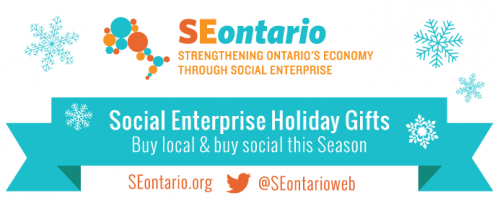 As I ponder how we analyze a community economy, I think I am starting to understand my continual aversion to the on-going efforts to ‘map social economy’ or ‘mapping social enterprise’. And it may not be just my irrational obstinate character!
As I ponder how we analyze a community economy, I think I am starting to understand my continual aversion to the on-going efforts to ‘map social economy’ or ‘mapping social enterprise’. And it may not be just my irrational obstinate character!
This new perspective comes from having just spent some time reading about “the map is not the territory,” a phrase coined in 1933 by the father of general semantics, Alford Korzybski; and following Dr. Peter Hall’s suggestion, reading the book “Seeing Like a State.”
I am realizing the difference is simply between static pictures of what is there in a snapshot at the time of the mapping and being able to express the dynamic relationships of what is happening among the components of the map.
The ‘territorial relationship’ perspective also appears in an academic review of business guru Peter Drucker’s organizational analysis. The concept reflects the early ecosystems analysis by author Fritjof Capra (The Tao of Physics & The Turning Point particularly). And I am learning it is common in some therapeutic models.
One author describes mapping alone as an Aristotelian view of reality (cause & effect), rather than the capacity to reflect the vibrancy offered by a Quantum analysis (relationships). The framework is so much broader than I had anticipated.
Peter Pula of Axiom News in a blog adds “Over lunch one day, a day in which David Cooperrider was incredibly generous with his time, we were discussing the work of discovering strengths in people, organizations and systems as an approach to constructive journalism. He said, it’s about even more than discovering strengths these days; it’s about discovering where the energy is in a system. Another clinker. Where is the energy in the system?”
Anne Jamieson of TEF and Chair of the Ontario Social Economy Roundtable helped my understanding as well: “My thoughts are that mapping can be useful – for people who are new to the sector and are trying to navigate the ‘who’s who’ of the social economy/social enterprise sector. I have always worried about ‘mapping’ being a distraction, and requiring an investment of resources far greater than the benefit. Not to mention, that maps are static, quickly out-of-date, and in no way able to explain the dynamic relationships that exist.
Let’s avoid ‘mapping’ and focus building our networks, so that newcomers can join them and learn about the relationships that way. Let’s also build good directories that are targeting specific audiences (consumers or corporations, geographic regions), and are commonly accepted in the business world; keep them simple, and as up-to-date as possible, and avoid worrying about duplication – again, businesses are used to registering on many different directories, and purchasers are used to searching in a variety of places.”
All of these discussions are leading to some fascinating and evolving considerations of how do we map, design, and participate in the dynamic relationships, the “territory” of a community economy. So more to follow…
This post was originally published on the Accelerating Social Impact CCC’s website on November 17, 2014.

David LePage is a Principal with Accelerating Social Impact CCC, Ltd. (ASI), one of Canada’s first incorporated social purpose hybrid corporations. David is the former Team Manager of Enterprising Non-Profits, where he led the effort to expand the enp social enterprise development and training model across Canada. He initiated Canada’s first Social Purchasing Portal in 2003. He is currently involved in multiple public policy initiatives and research projects to support the social enterprise ecosystem across Canada.


 The Canadian Alternative Investment
The Canadian Alternative Investment Momentum’s Self Employment program has offered business training to Calgarians since 1998. Because our participants face barriers such as disability, income level, or low education, they would have difficulty starting a business on their own. Still, we know that with the right supports, these individuals can be successful launching a business that will improve their livelihood and maybe even create jobs for others. After 20 years and 700 participants, we have a fine-tuned model that comes with a powerful promise.
Momentum’s Self Employment program has offered business training to Calgarians since 1998. Because our participants face barriers such as disability, income level, or low education, they would have difficulty starting a business on their own. Still, we know that with the right supports, these individuals can be successful launching a business that will improve their livelihood and maybe even create jobs for others. After 20 years and 700 participants, we have a fine-tuned model that comes with a powerful promise.


 The holiday season is often a time when we feel we can reaffirm our values. Like Ebenezer Scrooge at the end of Charles Dickens’ A Christmas Carol, we pull away from our inward looking preoccupations and reawaken to the importance of our familly and friends and the community around us. At the same time,
The holiday season is often a time when we feel we can reaffirm our values. Like Ebenezer Scrooge at the end of Charles Dickens’ A Christmas Carol, we pull away from our inward looking preoccupations and reawaken to the importance of our familly and friends and the community around us. At the same time, 

 Co-operative Gift Bundle
Co-operative Gift Bundle Get the Facts on Shopping Local for the Holidays
Get the Facts on Shopping Local for the Holidays




 Are you ready to commit to your big, bold idea for positive social change?
Are you ready to commit to your big, bold idea for positive social change?
 According to a recent United Nations report countries that invest in their youth will have stronger economies and healthier populations. Unfortunately the efforts to address youth unemployment in most U.N. member countries is inadequate. Too many of the world’s 1.8 billion youth are becoming a cost to society rather than contributors to a prosperous future. During the past 10 years I have been the Chief Executive Officer of two international organizations working with youth and have witnessed the deterioration of opportunities for youth in both rich and poor countries. Urgent action is needed and with my partners Natasha Cassinath and Brent MacKinnon youthprofit.ca has been launched as one small but hopefully useful response to a very important problem.
According to a recent United Nations report countries that invest in their youth will have stronger economies and healthier populations. Unfortunately the efforts to address youth unemployment in most U.N. member countries is inadequate. Too many of the world’s 1.8 billion youth are becoming a cost to society rather than contributors to a prosperous future. During the past 10 years I have been the Chief Executive Officer of two international organizations working with youth and have witnessed the deterioration of opportunities for youth in both rich and poor countries. Urgent action is needed and with my partners Natasha Cassinath and Brent MacKinnon youthprofit.ca has been launched as one small but hopefully useful response to a very important problem.

 David Pell is a private consultant, team member of
David Pell is a private consultant, team member of  SocialFinance.ca announced at the
SocialFinance.ca announced at the